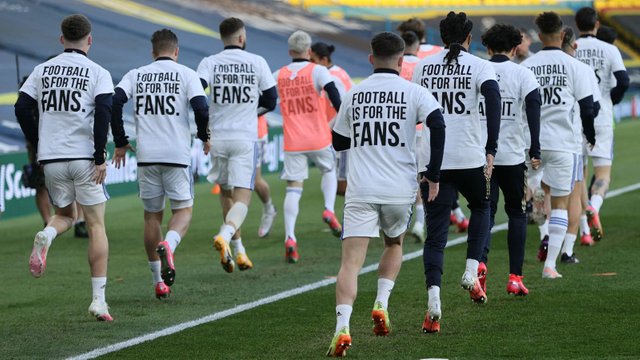Why The ESL Faced Stiff Opposition - Concluding Part
Despite the fact that the founding members who proposed the European Super League have since withdrawn their proposal, a lot of backlash have trailed their initial move and even their eventual withdrawal.
This is the concluding part of my piece on the subject matter. In the first part, I looked at the reasons given by the proponents of the league and the financial implications. You can read it here.
The clubs argued that they were making this move for the betterment of the game and the clubs. How true is this? Let's take a closer look at this proposed Super League.
The 15 founding members will be joined by additional five clubs every season. The founding members can never be relegated and it is unclear how the additional five teams will be selected. Borussia Dortmund, RB Liepzig and FC Porto were reported to have all declined the offer when approached.
The league will be split into two groups of 10 teams each, with the top three teams in each group qualifying for the knockout stage. The third and fourth teams in each group will contest in a playoff to get two additional teams to make the knockout phase. All of these games will be played home and away, except for the final which will be one-legged and on a neutral ground.
Interestingly, the founding members will share a whooping £3.1 billion as initial funds, in what has been tagged "infrastructure grant", to help with stadium, other facilities and loss due to the pandemic.
The first and major blemish with the idea was its impending effect on the respective leagues of member-teams. The ESL will take the shine of the leagues as there will be nothing to play for any longer in these leagues. No fight for Champions League qualification. No tussle for, at least, a place in the Europa League. No team will be struggling to beat the drop. Teams will begin to take their league games with levity.
Imagine if Manchester City have to face Barcelona in the upcoming week in the ESL, where they have all the money to play for, but before that, they have a premier league game against Everton at the weekend (to even consider Everton is at least a mid-table team), what kind of team do you think they will field in the premier league? This will affect the competitiveness of all the leagues involved, taking away the excitement, intrigue and surprises that come with them. A team can afford to lose all its 38 games and still get to the money-spinning ESL.
As a trickle down effect, fans of clubs who are not members of the league will have to endure that clubs playing in uncompetitive leagues. Their teams, no matter how well they perform in a season will be denied the opportunity of participating in the Champions League - ESL. What would then become of such, fans and the club as a whole?
On the part of the players, taking the premier league as an example, they already play 38 games which has been sandwiched into a 34-week calendar, playing in the Super League will mean additional 34 games for such teams. Crazy, right?

Also, the proposed league was going to feature only 20 teams from which as mentioned earlier, the founding 14 members will never be relegated. Truly, it was for financial improvement, however, this financial betterment was not going to be all-inclusive; only the participating teams will be richer.
Additionally, the criteria for selecting those who will participate in the league was already deprived of the most important thing in football, merit. Former Arsenal manager, Arsene Wenger and Manchester City manager, Pep Guardiola, both reiterated this argument in their respective interviews on the idea of the Super League. Founding members will qualify for the league, regardless of their performance or form during the campaign. This is more or less saying, regardless of your position in your respective league, you'd qualify for the Champions League. What then in champion in the league? Money.
Just before the English clubs announced their withdrawal, there was an exclusive report where a board member of one of the founding clubs spoke anonymously that the club owners/presidents were only concerned about the money, not the fans nor the players and they were ready to be banned from the league, if that would be the price.
Concluding Thoughts
The proponents of the ESL have bowed to pressure and called off the initiative, at least, for the time being.
The English clubs have made press releases, apologizing to their fans, with Arsenal confirming that they made a mistake but didn't want to be left out as they were looking to save the club.
It looks like the premier league teams are the ones feeling the heat the most as the remaining 14 teams in the league are torn between banning or not banning the six teams for this season's league.
Were the ban to come, which is looking very unlikely, it would be a disservice to the players as majority of them have spoken out against the idea, even before their clubs eventually pulled out. One thing is sure though...
The only constant thing in life is change and one of the things that always come with change is that it will be resisted. It is safe to say that this idea of the super league may not be entirely dead. All parties concerned can still sit at a round table to look at how best to make it work.
What will be the idea of a super league that you fancy or do you think the current champions league suffices?
